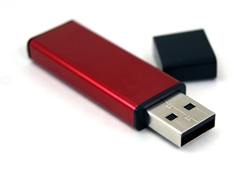How to Keep Solid State Drives Healthy and Functional
 Solid-state drives (SSDs) are the next big thing in local data storage. When it comes to data reserves PC users traditionally have had few options: hard disk drives (HDDs) were the norm, augmented by removable storage (like zip drives or floppy disks, if you can remember back that far). A few computing devices possessed SSDs, but their deployment was sparse and limited. Over the last several years, however, innovations in SSD technology have made them available for regular PC use. In some respects they offer substantial benefits over HDDs. Should you switch? It’s not as easy of a choice as it might appear. There are some substantial drawbacks to SSDs that can result in harsh consequences for unprepared users. Additionally, they suffer from degradation over time just like HDDs, and they can make the computer slower as their functionality dwindles.
Solid-state drives (SSDs) are the next big thing in local data storage. When it comes to data reserves PC users traditionally have had few options: hard disk drives (HDDs) were the norm, augmented by removable storage (like zip drives or floppy disks, if you can remember back that far). A few computing devices possessed SSDs, but their deployment was sparse and limited. Over the last several years, however, innovations in SSD technology have made them available for regular PC use. In some respects they offer substantial benefits over HDDs. Should you switch? It’s not as easy of a choice as it might appear. There are some substantial drawbacks to SSDs that can result in harsh consequences for unprepared users. Additionally, they suffer from degradation over time just like HDDs, and they can make the computer slower as their functionality dwindles.
First it’s important to understand what an SSD is and what it can offer. The “drive” part of its name is a bit of a misnomer: whereas HDDs contain no magnetic platters that need to be driven by a spindle to function, SSDs possess no moving parts. Instead they utilize interconnected circuit assemblies that store data on flash memory chips.
While they perform the same function, SSDs and HDDs differ in a few key ways. For one, SSDs generally offer more storage. They max out at 1 terabyte (enough to hold 17,000 hours of music or 40 days of video, according to PC Ninja), but are more commonly offered with 128 gigabyte or 500 GB capacities. HDDs typically can’t be found with more than 128 GB. This may sound like a lot, but data storage can quickly skyrocket for many of today’s PC users, inhibiting computer speed. SSDs are also much speedier, making the computer faster, particularly during startup. HDDs still have the upper edge in pricing and availability. They are also easier to resuscitate if they fail, while broken down SSDs can often result in complete data loss.
A Key Difference: Disk Defragmentation
Like HDDs, SSDs can get cluttered with programs and files and slow down. However, unlike HDDs, a conventional disk defrag tool is not the appropriate solution. These services perform rewrites on the hard drive, but in the case of an SSD, the way that it stores data makes such write cycles unnecessary and even detrimental, according to PCWorld. Un-optimized SSDs not only suffer from poor performance but can lead to artificial ravaging of the drive itself, which can lead to the catastrophic total data loss mentioned above.
Included in iolo technologies’ System Mechanic PC tune-up solution is the SSD Accelerator™, uniquely created for cleaning and speeding up SSDs to make for better overall PC performance.








